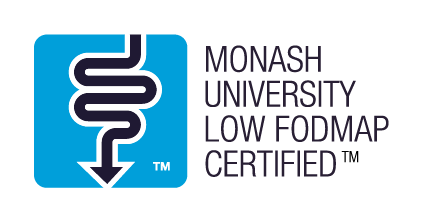
Let’s deep dive into how the food we eat affects the functioning of our brain!
Food and nutrition is an essential component of a healthy brain. The brain is only approximately 2% of our body weight but uses approximately 20% of the energy from our calorie intake(1), making it vital to feed our brains with nutritious whole foods.
Both diet and exercise can directly affect mitochondrial energy production, which is important for supporting your brain’s synaptic plasticity (ability of the brain to change and adapt to new information) and cognitive function(2). The latest research suggests that there is a significant relationship between diet quality and mental disorders(3). Nutrient-rich, anti-inflammatory foods promote better cognitive ability and overall brain health, with processed foods and sugars worsening your body’s regulation of insulin and promoting inflammation and oxidative stress(3).
Here are my top brain-loving nutrients!
Antioxidants enhance overall brain function and protect against cognitive decline(4) and can be found in dark and colourful fruits and vegetables, such as berries, dark leafy greens and tomatoes. Berries also contain flavonoids, the natural plant pigments that give berries their vibrant colours, which have been shown to promote memory, learning and cognitive function(4).
Tips:
- add organic berries to yoghurt, granola, porridge or in smoothies.
- chop up spinach and add at to your favourite meals for added nutrients.
Try our Moroccan Beef Meatballs with Sweet Potato & Broccoli.
Vitamin E is an important antioxidant that can protect brain cells from damage associated with oxidative stress caused by free radicals(3). Almonds and avocados are high in Vitamin E and packed with monounsaturated fats associated with good heart health, also helping regulate blood sugar levels, which if not controlled, can contribute to an unhealthy gut and rising levels of inflammation(5).
Tips:
- chop almonds and toast almonds before adding to your salads for extra crunch.
- enjoy a slice of your go-to bread with avocado, tomato slices and salt & pepper for the perfect afternoon snack.
Try our Pumpkin & Kale Risotto
Omega-3 fatty acids are anti-inflammatory fats that play a vital role in the development, functioning, and ageing of the brain. A diet deficient in omega-3s are associated with an increased risk of developing various psychiatric disorders, including depression, bipolar disorder, schizophrenia, and dementia(6). The three most important types are ALA (alpha-linolenic acid), DHA (docosahexaenoic acid), and EPA (eicosapentaenoic acid). ALA is mainly found in plants, while DHA and EPA occur mostly in animal foods and algae. Oily fish, such as salmon and tuna are rich in omega-3 fatty acids and plant-based omega-3 can be found in ground flaxseeds and chia seeds.
Tips:
- add chia seeds and ground flaxseeds to your breakfast and in homemade baked goods.
- enjoy a tuna toasted sandwich with cheese and rocket for a tasty lunch.
Try our Atlantic Salmon Risotto
Carbohydrates are not to be feared! They are your body and brain's primary fuel source, with your brain consuming an immense amount of energy relative to the rest of the body. Aim to include real whole grains in meals, which are called complex carbohydrates and can be found in foods like oats, potatoes, rice and quinoa.
Tips:
- try overnight oats for an easy on-the-go breakfast
- cook a batch of quinoa or rice at the start of the week to add to meals when you need.
Try our Smokey Chicken with Potatoes, Corn & Black Bean Salsa.
Now you know how to feed your brain properly, this week and the weeks that follow! Want to learn more about brain health this week? Check out our blog about Gut Health, Mental Health & Nutrition – A love triangle.
Sophie Kane
- Clark D. D. & Sokoloff, L. (1999) in Basic Neurochemistry: Molecular, Cellular, and Medical Aspects, eds. Siegel, G. J., Agranoff, B. W., Albers, R. W., Fisher, S. K. & Uhler, M. D. (Lippincott, Philadelphia), pp. 637–
- Cheng, A., Hou, Y., & Mattson, M. P. (2010). Mitochondria and neuroplasticity. ASN neuro, 2(5), e00045. https://doi.org/10.1042/AN20100019
- Maciejczyk, M., Żebrowska, E., & Chabowski, A. (2019). Insulin Resistance and Oxidative Stress in the Brain: What's New?. International journal of molecular sciences, 20(4), 874. https://doi.org/10.3390/ijms20040874
- Baroni, L., Sarni, A. R., & Zuliani, C. (2021). Plant Foods Rich in Antioxidants and Human Cognition: A Systematic Review. Antioxidants (Basel, Switzerland), 10(5), 714. https://doi.org/10.3390/antiox10050714
- La Fata, G., Weber, P., & Mohajeri, M. H. (2014). Effects of vitamin E on cognitive performance during ageing and in Alzheimer's disease. Nutrients, 6(12), 5453– https://doi.org/10.3390/nu6125453
- McNamara, R. K., & Almeida, D. M. (2019). Omega-3 Polyunsaturated Fatty Acid Deficiency and Progressive Neuropathology in Psychiatric Disorders: A Review of Translational Evidence and Candidate Mechanisms. Harvard review of psychiatry, 27(2), 94– https://doi.org/10.1097/HRP.0000000000000199.









